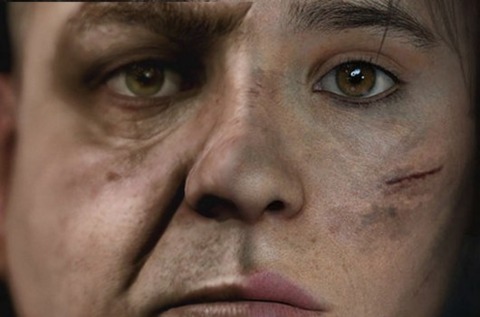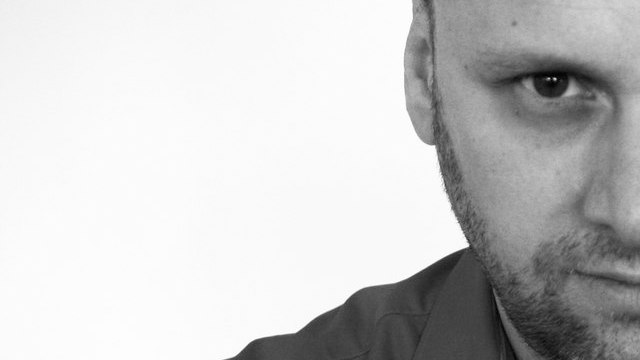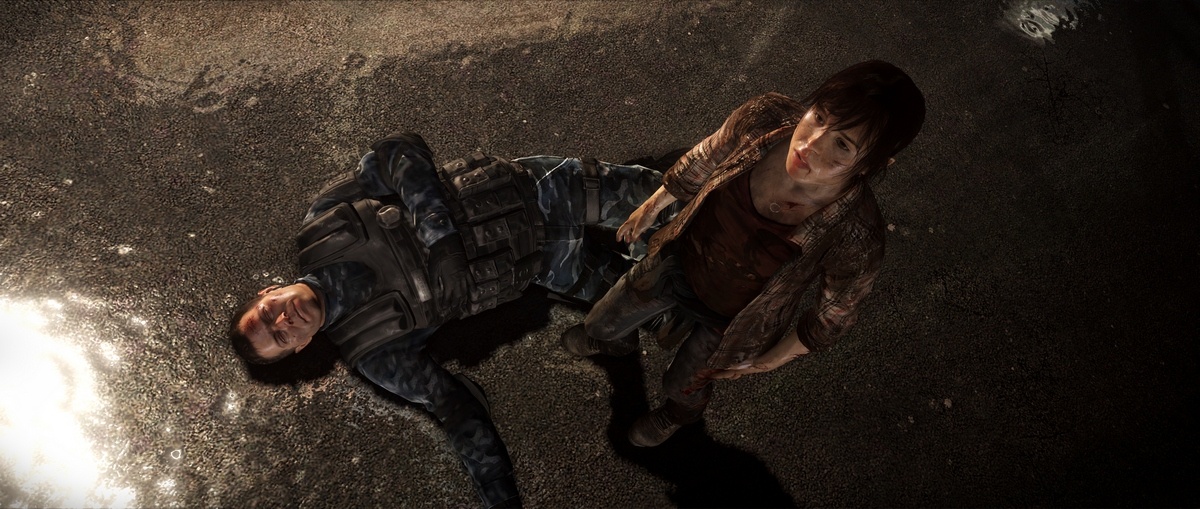David Cage and the Race for a Faster Horse
Laura Parker speaks with the head of French game development house Quantic Dream about peer approval and the growth of the gaming industry.
During his 2013 DICE Summit presentation in Las Vegas earlier this year, Quantic Dream founder David Cage revealed a list of the 30 best-selling games of all time. The list was dominated by Nintendo, Call of Duty, and Grand Theft Auto titles. Few people in the audience could say they were surprised. But for Cage, the list represented everything wrong with the video game industry.
Those who have heard Cage speak are well acquainted with the game designer's frustrations with the current state of game development: not enough games explore the breadth of human emotion; too many games focus on mindless violence; there is not enough diversity and risk-taking; there is not enough art. He repeats these things in interviews and public appearances with astounding regularity, showing particular partiality to certain ideas and even certain words. There's one Henry Ford quote which is seldom absent from his routine: "If I had asked people what they wanted, they would have said faster horses."
By this, Cage means that developers have become lazy, that they've allowed themselves to think that the 30 best-selling games of all time are a true indication of what gamers want. So why should the game industry stop delivering the same experiences that have proven profitable, time and time again? Because you can't expect the audience to know what it wants, Cage argues. Give them something new, something different, and chances are they'll like it.
For the last 10 years, Cage has urged developers to start making games that have something to say about humanity, games that attempt something bigger than mere entertainment and challenge you to think about the world you live in and those you share it with. He has asked the game industry to stop using the same themes and the same worlds. He has argued that more games should focus on giving you a journey, rather than a series of challenges.
The reaction to Cage's 2013 DICE Summit presentation was typical of the kind of criticism he has received since he first began talking about these ideas: some argue his cries for improvement ring hollow in an industry that has already grown up; others accuse him of deliberately setting out to "yank people's chains." He has been criticized for demanding less violence in games, for being a danger to the games industry, for being a hypocrite, and for being obsessed with cinema.
So why does Cage persist?
"Yes it's true, I only have one story," Cage laughs. "When I started shouting and screaming these things 10 years ago, no one had a clue what I was talking about. But today when I talk, people listen. Maybe it's because they enjoyed Heavy Rain, or maybe they heard about what we're doing [at Quantic Dream]. Do they agree? Do they care? Maybe not, but at least they hear."
Cage was born David De Gruttola in 1969 in the Alsace region of Mulhouse in eastern France and got his start as a professional musician, working in television, film, and eventually video game music and sound production. He started playing the piano at the age of 5 and went on to study at a conservatory for 12 years before starting freelance work from the age of 14.
 At 18, Cage traveled to Paris to work for a record label and later acquired a studio in Montparnasse, Totem Interactive. For the next five years, he continued to work for clients in the entertainment industry, becoming more involved with video games and eventually creating music for games including Super Dany and Time Cop on the SNES, Sega's Cheese Cat-Astrophe Starring Speedy Gonzales, and Virgin Interactive's 1996 rail shooter Hardline. In 1997, at the age of 28, Cage founded Quantic Dream.
At 18, Cage traveled to Paris to work for a record label and later acquired a studio in Montparnasse, Totem Interactive. For the next five years, he continued to work for clients in the entertainment industry, becoming more involved with video games and eventually creating music for games including Super Dany and Time Cop on the SNES, Sega's Cheese Cat-Astrophe Starring Speedy Gonzales, and Virgin Interactive's 1996 rail shooter Hardline. In 1997, at the age of 28, Cage founded Quantic Dream.
Cage jokes that he had to hire a co-CEO for Quantic (Guillaume de Fondaumiere) because he does pretty much everything else: founder, CFO, commercial and creative director, project manager, game designer, scriptwriter, director, and studio spokesperson. He credits his father for his entrepreneurial spirit and is not embarrassed to admit he changed his last name because too many English-speaking people mispronounced it.
He has designed and directed all of Quantic Dream's games to date: Omikron: The Nomad Soul in 1999, on which he collaborated with singer David Bowie, who had cameo roles in the game and who wrote several tracks from his album "Hours…" specifically for the game; Indigo Prophecy in 2005; Heavy Rain in 2010; and the upcoming Beyond: Two Souls. His longtime partner Sophie Buhl has worked with him at Quantic Dream since the studio was founded, serving as lead scripter and level designer on all the studio's games. Together they have two boys, Quentin and Ulysse. Cage's private life has often served as inspiration for his public one: he has often said his main motivation for making Heavy Rain was the realisation of how far he would go to save the lives of his children, while Beyond: Two Souls is inspired by Cage's own dealings with grief after the death of someone close to him.
He says the things he repeats over and over at gaming conferences and in public addresses and interviews are not the kinds of things one can say just once and move on. It takes time for people to understand his point--even more time to say what he means in the right way, to the right people, in the right place. How he is perceived, either by his peers or by the media, is inconsequential.
"I'm not saying these things to be liked or disliked by people. I'm saying them because this is what I believe. If there are a ton of people who love me because I'm saying them, then great; if there are a ton of people who hate me, great again."
It's worth noting that Cage doesn't want his point of view to be the only point of view. He has never asked his peers to do as he says, nor has he ever stated that the types of games he would like to see more of--ones that deal with more mature, adult themes and have a higher meaning--should be the only types of games that exist. He's not actually saying that Call of Duty and Grand Theft Auto are bad games, or that they don't serve a purpose in the industry.
He just believes the market is ready for new ideas, and it's the games industry's job to deliver them. Not in place of Call of Duty or Grand Theft Auto, but in addition to them.
Metaphor: ReFantazio The King’s Trial Trailer Tales of the Shire - Official Announcement Trailer Dead Island 2 – Steam Launch Trailer Nickelodeon All-Star Brawl 2 - Official Zuko Gameplay Spotlight Trailer Valheim: Ashlands - Official Gameplay Trailer Tales of Kenzera: ZAU GameSpot Video Review Stellar Blade - Beta Skills Gameplay Trailer | PS5 Games Stellar Blade - Burst Skills Gameplay Trailer | PS5 Games GODDESS OF VICTORY: NIKKE | New Main Chapter 29~30 Update Trailer GODDESS OF VICTORY: NIKKE | Happy 1.5 Anniversary Trailer GODDESS OF VICTORY: NIKKE | Kilo Character Motion Demonstration Trailer How The Fallout TV Show Shapes Fallout's Future
Please enter your date of birth to view this video
By clicking 'enter', you agree to GameSpot's
Terms of Use and Privacy Policy
His critics have often remarked that many of these games already exist thanks to the indie space and that it is ludicrous for him to suggest that all games should be deep, given that games are first and foremost supposed to entertain. He says he understands this perfectly well.
"The answer to the industry's problems could very well come from the indie space. I know that. Indie game development is exciting, interesting, and risky. Independent game developers are pioneers, and we're in desperate need of pioneers. When you look at cinema, you can see the same thing: it was really the underground filmmakers that brought about the revolution and broke free of what the big studios were doing. Maybe this is what needs to happen in the games industry."
The comparison--while not altogether apt given how different games are to cinema--helps Cage illustrate his ideas for growing the storytelling potential of games. He says that the games industry should be as diverse in experiences as the film industry--drama, action, comedy, satire--and that there's no reason games should not attempt to widen the current boundaries and create new genres that play with different combinations of story and gameplay.
Most people know Cage is impassioned by the idea of more-engaging stories in games. He genuinely believes you should invest yourself in the games you play, and keep thinking about them long after you've stopped playing. One of the more controversial claims he has made is that more games should employ the services of professional writers, rather than relying on programmers and artists to throw together a story that fits in with the gameplay. He insists this isn't about the long-standing debate about story vs. gameplay: a game doesn't need a rich, involved story to be compelling and say something meaningful. (He points to Journey as an example.) Rather, it's about knowing how to give players memorable experiences: memorable set pieces, memorable characters, and memorable ideas.
To achieve this, he'd like to see more collaboration between the games industry and Hollywood, something akin to the partnership that JJ Abrams and Gabe Newell are keen to develop. It's not simply so games can be more like films, as some people accuse him of believing, and Heavy Rain of trying to do, but more about learning from a more established medium which has had a lot more practice in evolution and revolution.

"A filmmaker's job is to create emotion. Does that mean we should just copy that? No, because our medium is different. It has its own language. Can we learn from them? Yes."
This may sound silly, but it is not an uncommon wish among advocates of deeper, more-enriching gaming experiences. The problem, it seems, is with Cage's implication that game development hasn't come far enough and that the medium is struggling because of it. His critics take personal issue with this, as if it is them that Cage is attacking. (A point he made during the 2013 DICE presentation that the games media should take more responsibility with criticism drew particular ire from some writers who felt insulted by the idea that their job and talent were being called into question.) To them, it feels like Cage doesn't even like games besides his own.
"When I talk so much about film, people get really upset because they think I'm talking about making interactive cinema. They say, 'We want to make games, pure games!' But how many mediums were created from scratch? How many art forms were created the same way as ours? We should listen and learn from anyone who has anything meaningful to say and to show."
Cage points to a number of game makers he believes are bettering the industry by providing exactly the kinds of experiences he has been talking about: studios like Telltale Games, Thatgamecompany, and Minority, and game designers like Jonathan Blow.
As long as someone, somewhere is paying attention, he feels it has all been worth it.
"Maybe I should just shut up and get on with my games and not bother talking about all these tricky things, telling developers that they should change or telling the press they should evolve, but I can't. It's part of my responsibility as a member of this industry to say these things. It's my responsibility to share my experiences and my point of view, and to see if it's useful to anyone else."
It's a responsibility David Cage is taking seriously.
'Got a news tip or want to contact us directly? Email news@gamespot.com



Join the conversation